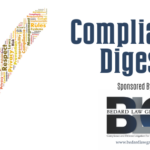A bill has been introduced in the North Carolina General Assembly that would set new rules for how medical debts are collected in the state and one need look no further than the name of the bill to get a sense of where the authors got the idea for the proposed legislation — the Medical Debt De-Weaponization Act.
If seeing the word “weaponization” doesn’t ring any bells, then you haven’t been seeing or reading what the Consumer Financial Protection Bureau has been publishing recently. In April, they said that credit reporting healthcare debts can be “used as a weapon” to get people to pay debts they do not owe. Also in April, CFPB Director Rohit Chopra said that “It is critical that our credit reporting system is not used as a weapon to coerce Americans into paying bills they may not even owe.” Even before he joined the CFPB, when he was a commissioner with the Federal Trade Commission, Chopra said, “It is critical that bad actors not be allowed to weaponize the credit reporting system against consumers.”
Putting aside where state Rep. Ed Goodwin, a Republican, got the idea for the legislation, here is what House Bill 1039 would do.
If enacted, healthcare facilities would be required to create Medical Debt Mitigation Policies that would be built on the facilities’ existing financial assistance plans. Healthcare facilities would be required to expand charity care and financial assistance plans and take a series of steps before sending bills to patients. Collecting on debts would be prohibited while bills are in the insurance appeals process, and the interest on unpaid medical debts would be capped at 2%. New limits on reporting medical debts to credit reporting agencies would be established, and individuals would have a private right of action against any medical creditor or debt collector.









